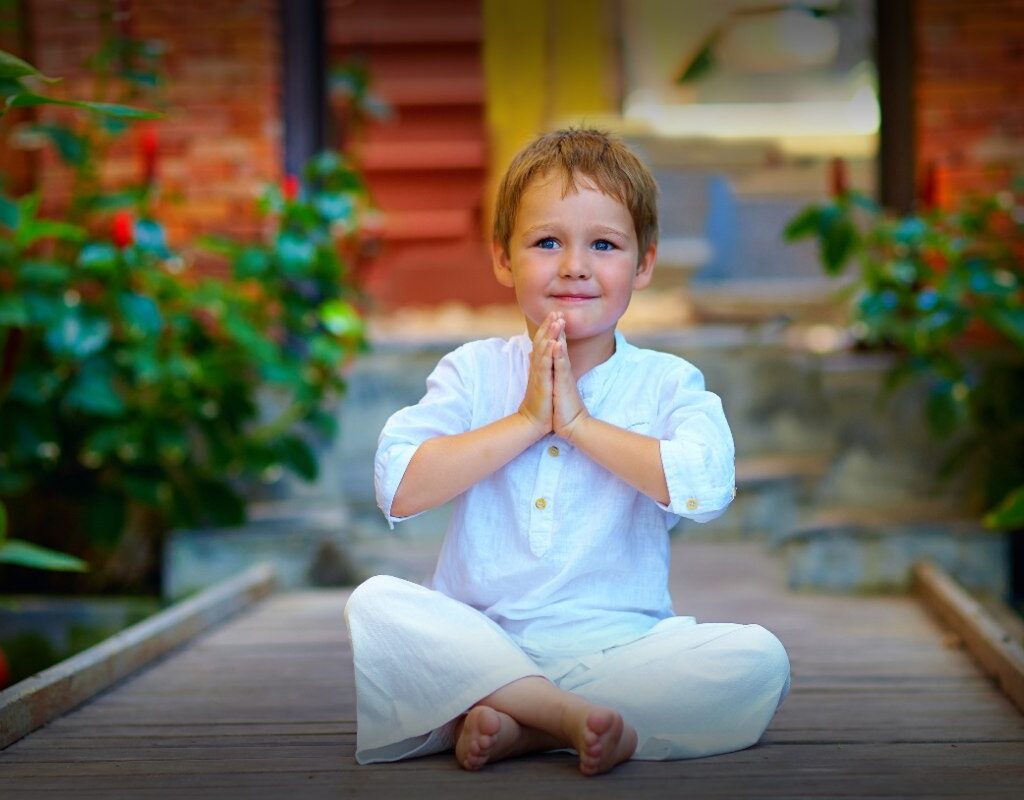Throughout the world, childhood is permeated by teachings of all kinds, including instruction in spiritual or religious doctrines. However, there are homes where this type of teaching is absent which is absolutely respectable.
Teaching Spirituality to Children: A Step-By-Step Guide
Whether or not to believe in a higher spiritual power is, after all, a personal matter.
It is common that, even if they have grown up in a religious environment, people may detach themselves from these beliefs in their adolescence or adulthood. My personal experience, in fact, is quite unique and I would like to share it.
A Glimpse of My Spiritual Journey
My education took place in a non-practicing Catholic home. I was baptized and fulfilled several of the sacraments of this faith. I confess that I regularly attended mass on Sundays and participated in some religious ceremonies.
Religion didn’t really capture my interest until my 18th birthday. It was at the beginning of my university studies that a strong desire to understand God emerged in me. This concern led me to explore a diversity of religious beliefs, some more unique and striking than others.
I jumped from one religion to another, like someone who jumps from one store to another but none could satisfy my search.
It wasn’t until 2007 that I stumbled upon a faith that allowed me to clear up many of my doubts about God. I was a committed follower until 2013 and I recognize that it provided me with numerous significant learning in the spiritual field. However, at the end of 2013, certain events caused me discomfort and I chose not to return to that congregation.
From then until now, I don’t follow any specific religion. I hold spiritual beliefs that are largely not tied to any particular faith. Honestly, I feel that no doctrine could provide me with the answers I am looking for and I am at peace with it.
The Role of Parents in the spiritual instruction of Children
I firmly believe that parents have a decisive influence on the spiritual education of their children. Should parents introduce religion to their children?
Honestly, I think so. However, if over time, their children choose different religious beliefs, parents should respect that choice.
My parents never intervened in my spiritual decisions. They guided me enough to recognize when I should get away from a problematic situation and that’s precisely what I did with every religion I experienced. If something seemed inappropriate, unethical, or disrespectful to me, I would just leave it aside.
I am convinced that no one should be coerced into believing in anything. We should all distance ourselves from any beliefs that contravene our values and moral principles.
Of course, parents have a duty to encourage spirituality in their children. They must guide them to distinguish right from wrong; and based on that, decide whether or not to continue with their beliefs.
Recommendations for instilling spirituality in children
Here are some steps to follow to instill spirituality in your children at home.
Educate about a transcendental power
Regardless of your faith, all religions are based on the existence of a supreme being. Whatever their denomination within your beliefs, you should teach your child that there are goals and situations that they can understand and achieve on their own. However, there are also circumstances and events that you can only understand if you have faith in that higher being.
Do spiritual activities as a family
All religions offer practices for getting closer to this supreme being; do them together. Pray as a family and give thanks together for food. Also, read sacred texts together. These activities, even if they seem simple, strengthen your child’s faith and trust in that higher self.
Explain the meaning of religious celebrations
Every religion has a set of significant events. Teach your child why each one is celebrated, how it is celebrated and its importance. Children are naturally curious and the greater their interest, the more they will try to understand. Who better than you to satisfy their thirst for knowledge?
Pray whenever possible
Prayer is the most direct way to approach God. It’s how we understand each other and ask for guidance and help in our lives. Prayer is how we establish a close relationship with that supreme being.
Teach your child that they can pray whenever they want, even when they don’t have specific needs. Encourage him to pray on the way to school or in his room before bed. Remind them that, before praying, they should be thankful for what they received; after that, they can begin to talk to God about anything they want.
Don’t forget to teach them that they will always be heard and that their prayers will always be answered. To listen to it, you just have to be aware of what is happening around you.
Motivate them to serve
“Those who don’t live to serve, don’t serve to live”, the premise is that simple. One of the fundamental teachings of many religions is to love our neighbor as ourselves. Many people don’t practice it, but that doesn’t mean we should stop doing it. Serving is a way of showing that love to others.
No large donations or sacrifices are required. These can be simple actions such as giving up a seat to someone on public transport or mowing the lawn of an elderly neighbor.
The objective is to teach children not to be selfish and to give their best to others, always under adult supervision. It is important to be aware that goodness should not make us blind, since evil can be present in many places and disguised as ordinary people.
Last but not least, don’t forget to respect your children’s free will. They will always have the option of accepting your beliefs or not, but don’t force them; that will only cause them to move away from your beliefs.
This article provides a spiritual guide based on the teachings of author Erika Patricia Otero, for the familias.com website. Its main purpose is to provide information and perspectives that promote personal and spiritual growth in our children.




